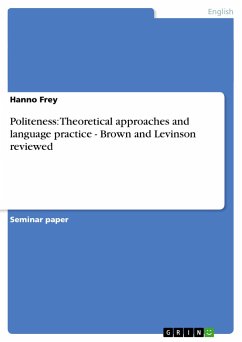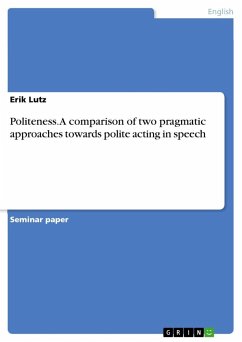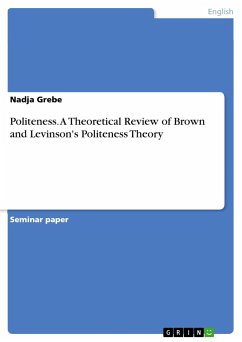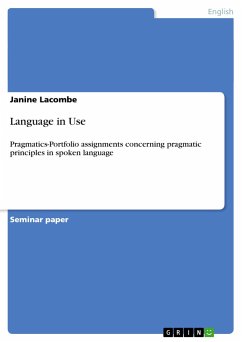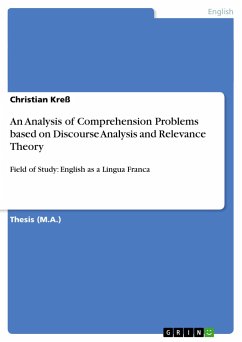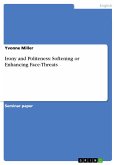Seminar paper from the year 1999 in the subject English Language and Literature Studies - Linguistics, grade: 1,3 (A), University of Hamburg (FB Anglistics), language: English, abstract: Effective communication is a key process in everyday life. Not only do we need to communicate about business and public affairs but also about ourselves and the things which concern us personally. In each case, it is highly interesting to analyse how we try to convey the information we want to get across: Naturally enough, we make use of conventional language but we are also creative and constantly invent new words, phrases and formulations. This, according to Blank, is due to the fact that: "Linguistic (and even non-linguistic) communication can be seen as a process whereby people try to maximize their communicative success by minimalizing their linguistic effort" (1993, p. 6). Sometimes, however, we diverge from the maximally effective way of communication and, naturally-enough, the question arises, why we do so. The divergence, however, which seems to be highly irrational as far as efficiency is concerned will turn out to be highly rationally motivated - with politeness being the main reason for this process. In the following, I will (1) sketch out the maxims according to which effective communication takes place and (2) analyse the reasons why it is sometimes advisable to intentionally counteract to the requisite maxims. For this purpose, I will refer to different works of well known linguists, especially to the model of politeness suggested by Brown and Levinson ( 1987). It is the final aim of this paper to reanalyse the model put forward by these two linguists and, thereby, evaluate to what extent their model covers politeness phenomena.

